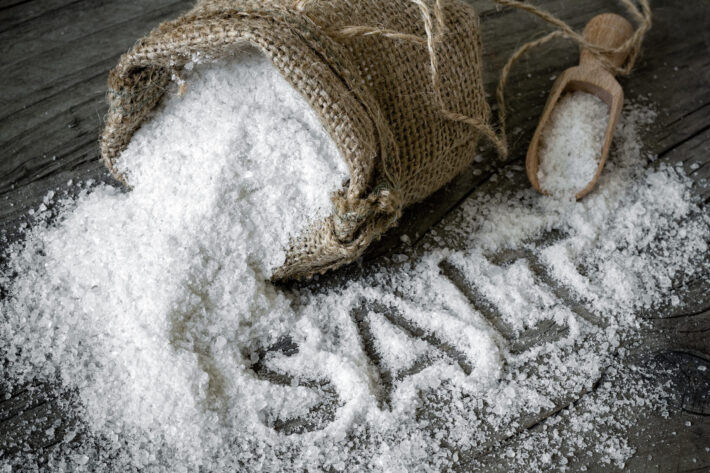
Eating too much salt can be bad for your health.
It increases the water stored in your body, which can raise your blood pressure. And the higher your blood pressure, the more strain there is on your heart, arteries, kidneys and brain. The American Heart Association recommends limiting salt to 2,300 milligrams (mg) a day, and if you have heart disease or high blood pressure, most adults should move toward an ideal limit of no more than 1,500 mg daily.
Why? The added strain can lead to heart attacks, strokes, dementia and kidney disease.
The other day I was eating in the hospital cafeteria and it occurred to me salt might just have another way to cause harm…
The salt shaker.
The CDC estimates that each year, 2 million people in the United States get a hospital-acquired infection. And that results in 20,000 deaths…every year.
Now it’s true that the most common nosocomial (a disease originating in the hospital) infections occur in hospitalized patients who get infections of their urinary tract, surgical site and various pneumonias.
But what about the people who visit?
You can get sick from visiting the hospital by getting an infection.
And what about people in the hospital?
You can get an infection from being in the hospital.
How? Here are some places bacteria and viruses hang out.
- Doctor’s stethoscopes – ask them to use a wipe to clean it
- Bedrails
- Buttons that call the nurse, elevate the bed, turn on the TV or change the volume
- The floor – people who wear the non-skid socks are picking up bacteria, and many sleep in the same socks. Change or wash them often or at least remove before bed
- Elevator buttons
- Door knobs
- Gift shops
- IV poles
- The cafeteria. Think about those salad tongs, and who might have sneezed on your table
Staying well in the hospital requires some effort on your part. Whether you’re a patient or a visitor, you have to be a bit obsessive. Don’t be afraid to be a patient or a visitor. Here are simple things you can do.
- Avoid putting your fingers in your eyes, nose and mouth
- Use antimicrobial hand sanitizers or good old soap and water often
- Wash of surfaces you touch with antimicrobial wipes
- Use your knuckle and not your finger tip for elevator buttons
- Use paper towel to open bathroom and other doors
Keep in mind when you go to the cafeteria, if the salt doesn’t kill you, the salt shaker might.
Food for thought!
